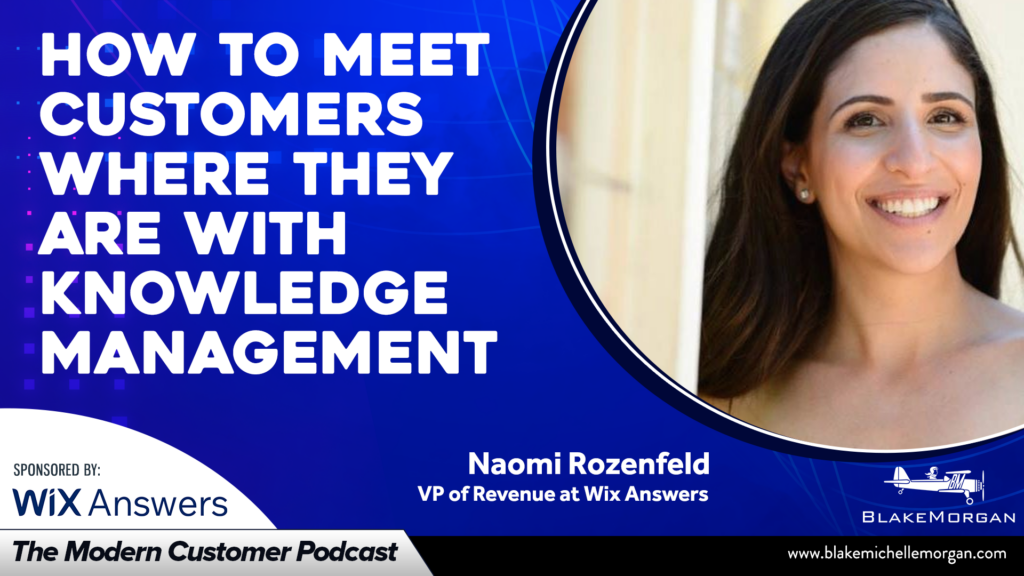It’s something all customers have faced: they have a problem or question, but the only way to resolve it is to wait on hold with the contact center or fill out a contact request form. The process is long and frustrating.
Modern customers want another approach to solving their problems. Knowledge management is a way to connect the dots and keep communication lines open with customers. Instead of companies holding all the answers, knowledge management shares resources like articles and self-service portals so customers can solve their own issues and provides a platform for communication across all channels.
Naomi Rozenfeld, VP of Revenue at Wix Answers, says effective knowledge management is all about meeting customers where they are.
Up until recently, knowledge management was difficult for many companies to talk about. Rozenfeld narrows it down to two main challenges: a lack of executive support within the company and technology limitations with support divided into silos that created a fragmented experience for customers and employees.
But over the past year, COVID has accelerated the need for self-service knowledge management. As the world was shutting down, companies realized that customers still needed support. Instead of waiting and reacting to customer issues and questions, companies need to proactively answer customer questions and provide resources.
Customers want to be in control of their service. Rozenfeld says knowledge management is now a need, not a want. She believes that what’s going to win business over for future transactions is how quickly a company can resolve an issue or how easy it is for customers to resolve their own issues.
Rozenfeld calls it the iceberg effect, or the idea that for every one person who opens a ticket or contacts the care team, there are nine people who don’t. That 90% of customers who don’t get in touch leave frustrated. Effective knowledge management provides resources and helps all customers, especially the vast majority who don’t want to have to spend time reaching out to a company.
Effective knowledge management starts by addressing the two main challenges. Rozenfeld says companies must have an executive sponsor to understand the impact on revenue and the company. CX managers and change agents need to make sure leaders understand why they need to invest in the tools to enable customers to solve problems on their own.
The second challenge is around technology. Companies need to stop looking at support through silos. Rozenfeld says silos and unconnected channels create gaps for customers to fall. But when channels are tied together and speaking the same language, the customer only has one entry point. It doesn’t matter where they started or how they communicate with the brand. Customer interactions are simplified and the agent can see the entire path instead of only having a view of one part of the problem.
Knowledge management is on its way to becoming a cornerstone of the modern customer experience. Meeting customers where they are and proactively providing great service creates empowered and satisfied customers.
_________________
*Sponsored by Wix Answers
It’s been a year of change for businesses. What’s making this period most challenging is the lack of clarity. But, that’s also where there’s an opportunity to stand out by building trust in your relationships with your customers with agile communication.
Wix Answers takes a new approach to customer support by helping you adapt quickly to know exactly what your customer needs and when they need it.
Go and see for yourself today at WixAnswers.com.
_________________
Blake Morgan is the bestselling author of The Customer of the Future. Sign up for her new course here.

